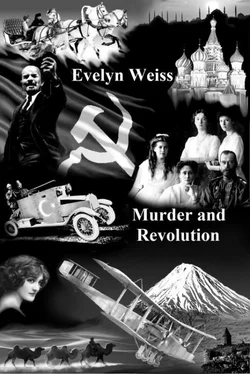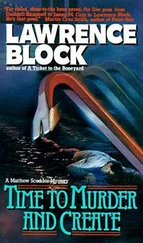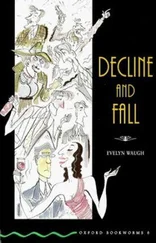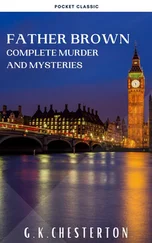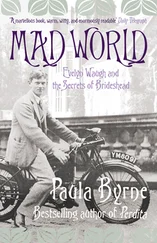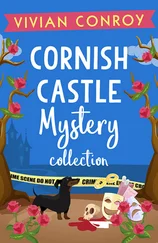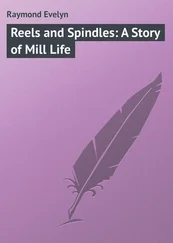“Yes, we do, Madam. On the upper floor. You go up the staircase, there.”
“I’m wondering – did you have a visitor, maybe three weeks ago, who asked about the butterfly collection here?”
“How odd you should ask that. How very, very, odd.” The man coughs, putting his fist to his mouth. Then he looks at me, smiling. I ask him again.
“So – a butterfly collector did visit?”
“He came here three weeks ago. We have a very fine collection: specimens of all the species that live in the Baltic Region, even the rare Clouded Apollo. The visitor was very keen to view them all.”
There’s something more. The old man grins, as if he’s enjoying a private joke. I look at him, and he tells me.
“What’s funny is you asking about that man, right now. You see, the butterfly collector has come back. I saw him walk in through the doorway – about half an hour ago, and go up the stairs. And I’ve not seen him come back down. So he’s still up there.”
5
The butterfly collector
I hurry up the stairs. But there’s no need to rush, I tell myself. The butterfly collector must be on the upper floor: if he comes down the steps, I’ll see him. There’s no one else about, no-one at all. Apart from the old man at his desk, the museum seems entirely deserted.
I reach the top of the stairs and follow a corridor. Opening off it are a succession of large rooms. The first is full of rocks and fossils, the second contains stuffed birds. In the third room a moth-eaten bear stares with glass eyes, and a wolf bares yellow fangs. At the end of the corridor, the final door is labelled ‘Lepidoptera’. I turn the handle, and step inside.
Tall wooden cabinets fill the room. There are two rows, side by side, leaving a way down the centre, like an aisle.
The fronts of the cabinets, which face me, are glass; the sides and backs are made of panelled wood. The cabinets are wide; each stretches nearly all the way to the windows which line both sides of the room. Sunlight slants through the windows on one side, so that each cabinet casts a shadow across my path as I walk down the central aisle.
He must be in here. I call out “Sir! Are you here?”
There’s no reply. I take another step forward, deliberately treading noisily. Perhaps he is absorbed in studying the butterflies. I look into one of the cabinets.
There are a host of butterflies, like rows of jewels catching the sunshine. Every one is skewered with a pin onto a card labelled with its name. I realise that there is not one specimen of each species, but hundreds. This cabinet happens to be full of Clouded Apollos, like the aftermath of some insect massacre. “No wonder it’s rare” I say to myself.
I look along the rows of impaled creatures. At the far edge of the cabinet, something juts out, silhouetted against the light of the window.
It’s a revolver barrel. Pointing straight at me.
Is it a trick of the light? I see the black circle of the muzzle, the dull gleam of the sun along the barrel. It’s no illusion.
I step back, behind the cabinet. My mouth is open, inhaling; my eyes dart around the room. There’s a dead silence.
I can feel my heart beating. I glance along the aisle down the middle of the room. As before, the cabinets cast their shadows on the floor. But the angle of the light also shows, in the nearest sunlit patch, the shadow of a man’s head and shoulders.
The shadow takes a step forward, along the front of the cabinet that I’m hiding behind. So I move right round behind the cabinet, pressing myself up against the wood panelling. But of course, my pursuer knows where I am. I can see his shadow on the sunlit patch of the aisle, and in the same way, he can see the shadow of my head and shoulders, pushed close up against the back of the cabinet. My hands are cold with fear.
The man and I stand in silence: both of us watch each other’s shadows, considering what to do. I breathe, and try to think.
I notice a nail, sticking out of the back of the cabinet. Inch by inch, all the time watching the shadow of my head and shoulders, I slip my coat off my shoulders. My shadow hardly alters.
I concentrate on one thing, and one thing only – my fingers, to keep them from shaking. I slowly lift the coat, and hook the collar over the nail. All the time I watch my shadow on the aisle: it remains unchanged.
Gingerly, I take one step back, gradually lowering my heel, then my toe, so as to make no noise on the floorboards. The shadow of the coat hanging on the nail is cast across the floor of the aisle, looking for all the world like the head and shoulders of a woman, pressed up against the back of the cabinet.
I take another step.
The man shouts. “Who are you? Come out!”
Can he see that I’ve moved? I want to answer him: to communicate, to try to make peace with this person. But I resist the temptation; I must keep silent. I step back again, but the man doesn’t move. The shadow of my coat has fooled him. I reach the window.
He shouts again; a bark that makes me jump. “Give yourself up! Now!”
Keeping alongside the windows, I step as silently as I can along the room, away from him.
Another shout. “Put your hands in the air! I will step round the cabinet, now!”
I reach the far corner of the room, and I see another door. Its sign says “Staff only”.
I try the handle with shaking fingers. I push it down a little, and thankfully, it doesn’t squeak. I breathe: slow, quiet and shallow.
I turn the handle more, and as I do, I hear the man’s footsteps. He’s walking round the cabinet. I expect a roar of rage when he finds the coat – but there’s silence. Whoever he is, this man is deadly calm.
I push the door open. I hear movement among the cabinets; the man has realised where I’ve gone. I slam the door behind me and clatter down a narrow staircase to ground level. A corridor stretches in front of me, ending in another door. It’s got a key. I shut the door behind me, fumble the key into the lock and turn it.
I breathe in relief, and look round. I’m back in the foyer where I met the old man. But he’s not there; the foyer is deserted.
It doesn’t matter. I rush over to the front door of the museum. It’s made of glass: I can see the hospital across the road. I turn the handle – but the door is locked. A cardboard hand-written sign hangs from the handle: “Gone for lunch, back soon”.
I pull and pull at the handle of the door. It rattles, but won’t open.
I hear a sound, and it makes sweat crawl down my face. A key is turning, in the door that I came through a minute ago. My pursuer must have found another key. Then, I hear that door swinging open. I don’t look back. I tug helplessly at the museum door. A man’s voice rings out.
“Stop! Turn and face me now!”
I make a final desperate pull at the door. But it’s immovable. The unseen stranger barks again.
“Who are you, and why are you interested in Professor Axelson?”
It’s the strangest thing: the voice is familiar to me. Although it’s speaking Russian, I’ve heard that exact intonation before, long ago and far away. The voice continues.
“Of course, it would be preferable to sort this matter out with a civilized conversation. I dislike unnecessary violence.”
I turn and face the speaker. A face emerges from the shadows; a face I know all too well. A small face, for a man. Sharp, intelligent eyes, an aquiline nose, and elegantly coiffured gray hair. I answer my pursuer, in English.
“Lord Buttermere.”
“Miss Frocester! Well, this is indeed a surprise. Please – accept my apologies for frightening you. I had no idea that you were here in Russia with Professor Axelson.”
He steps forward into the sunlit foyer, and explains. “I didn’t see your face, or hear your voice, so I didn’t realise it was you. In fact I have to admit, I was a little afraid myself.”
Читать дальше
